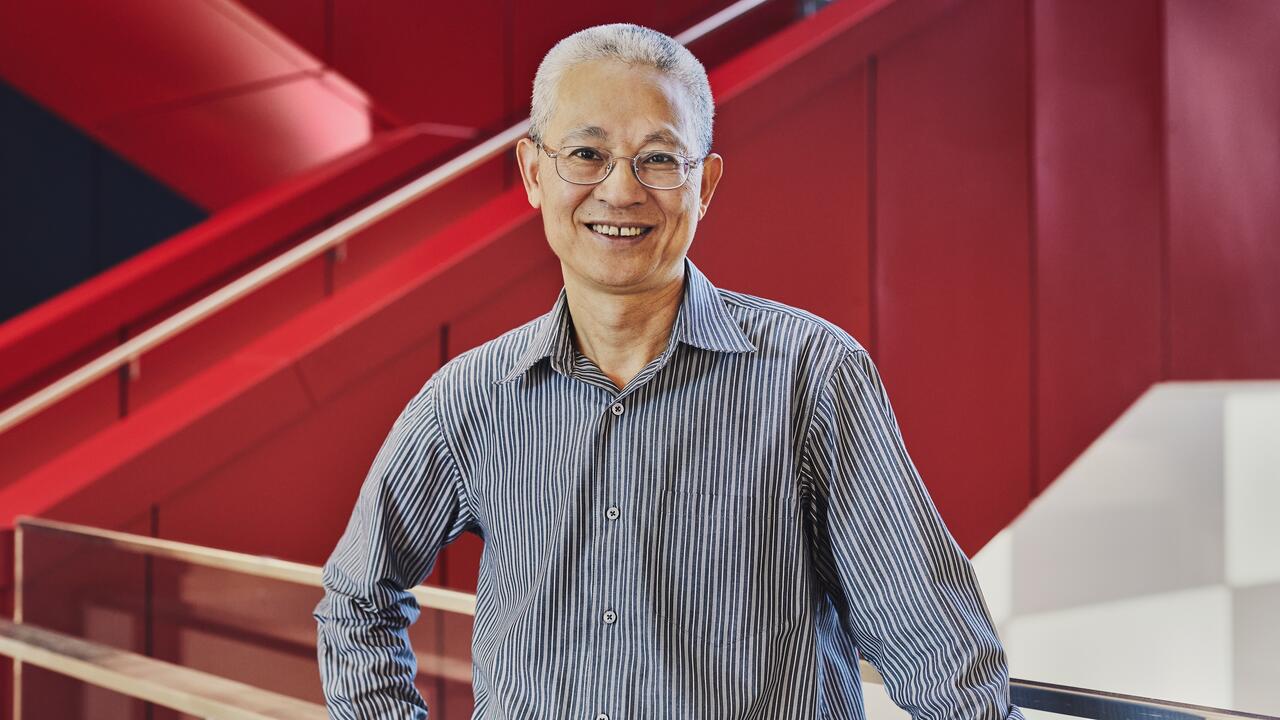Originally published by By Carol Truemner, Faculty of Engineering
Engineering professor follows his curiosity to major research prize for industry partnerships
Motivated by an innate sense of curiosity, Water Institute member Dr. Norman Zhou has made significant contributions in many areas of engineering over the past 24 years.
While he began his career as a Waterloo Engineering professor focused on advanced welding and joining technologies, his inquisitive nature also led to advancements in fields including nanomaterials fabrication and laser processing of shape memory alloys.
“I’m constantly wondering ‘why’ and ‘what if’ when it comes to many things in life and my research,” said Zhou, a mechanical and mechatronics engineering professor who is cross-appointed to electrical and computer engineering.
Zhou’s search for answers also led to national recognition today with the announcement that he is the winner of a prestigious Synergy Award for Innovation from the Natural Sciences and Engineering Research Council of Canada (NSERC), a prize that comes with a $200,000 research grant.
Lab 'has been a key player'
One of four winners across the country, he was cited in a category for productive collaborations between academics and two or more Canadian industrial partners. Three collaborators - Huys Industries, ArcelorMittal Dofasco and the International Zinc Association - share the award with Zhou and will each receive $30,000 vouchers to go towards future research partnerships.
Zhou, the Canada Research Chair (Tier I) in Advanced Materials Joining and Processing, is the associate director of the Centre for Advanced Materials Joining (CAMJ) at the University of Waterloo.
CAMJ has developed next-generation technologies for joining and processing advanced materials that enable the assembly and manufacture of structures and devices for many industries including automotive, aerospace, electronics and medical.
These innovations can be used in a wide range of areas such as water treatment, lightweight but strong automobile body structures and defect-free aerospace engine parts. Zhou’s work has also been used to advance medical technology and devices.
"Collaborating with over 55 local and international organizations, CAMJ has been a key player, influencing industry trends while representing Canada's interests on the world stage," NSERC said in its citation, stressing benefits to the economy including increased hiring and investment in local manufacturing.
Materials 'remember' multiple shapes
More than a decade ago, Zhou and Dr. Ibraheem Khan, then a mechanical engineering doctoral candidate, invented a process for manufacturing “smart materials” that can embed multiple memories into a single piece.
Traditional memory material “remembers” only one shape per temperature. Their method enables the material to remember many more. The patented technology is now revolutionizing devices such as stents, pacemakers, hard drives and dental braces.
Zhou and Khan (PhD ’10, mechanical engineering) co-founded Smart Alloys, which today has a world-class research and development facility for designing, prototyping, testing and characterizing shape memory alloy materials. Located in Cambridge, the company is led by Khan.
Earlier this year, Zhou spoke with someone from the U.S. whose son’s dental specialist had recommended an innovative orthodontic treatment invented by a “bunch of Canadian engineers.”
Zhou laughed when he told his acquaintance that he was one of the two Canadian engineers who developed the smart materials technology that is now used to help straighten teeth more efficiently than regular braces during orthodontic treatment.
'Our research has limitless potential'
In 2019, research by Zhou and Dr. George Shaker, also a Waterloo Engineering professor, was used to launch AquaSensing, which designs environment-friendly leak detection systems for industrial applications and healthcare.
One of the first commercial products developed by AquaSensing was a low-cost, batteryless and maintenance-free water leak sensor for use in residential and industrial buildings.
The company’s technology is also being used to create smart adult diapers featuring instant incontinence notifications to caregivers, and smart bandages, which would upload to the cloud lactate and glucose biomarkers, measurement and analysis.
Honoured to receive an NSERC Synergy Award for Innovation, Zhou said his work has benefited from collaboration with exceptional colleagues, industry partners and students throughout his career.
“We won’t stop - our research has limitless potential,” he said. “It’s continuous learning for my students and for me, so we will continue to push the boundaries wherever we can.”
